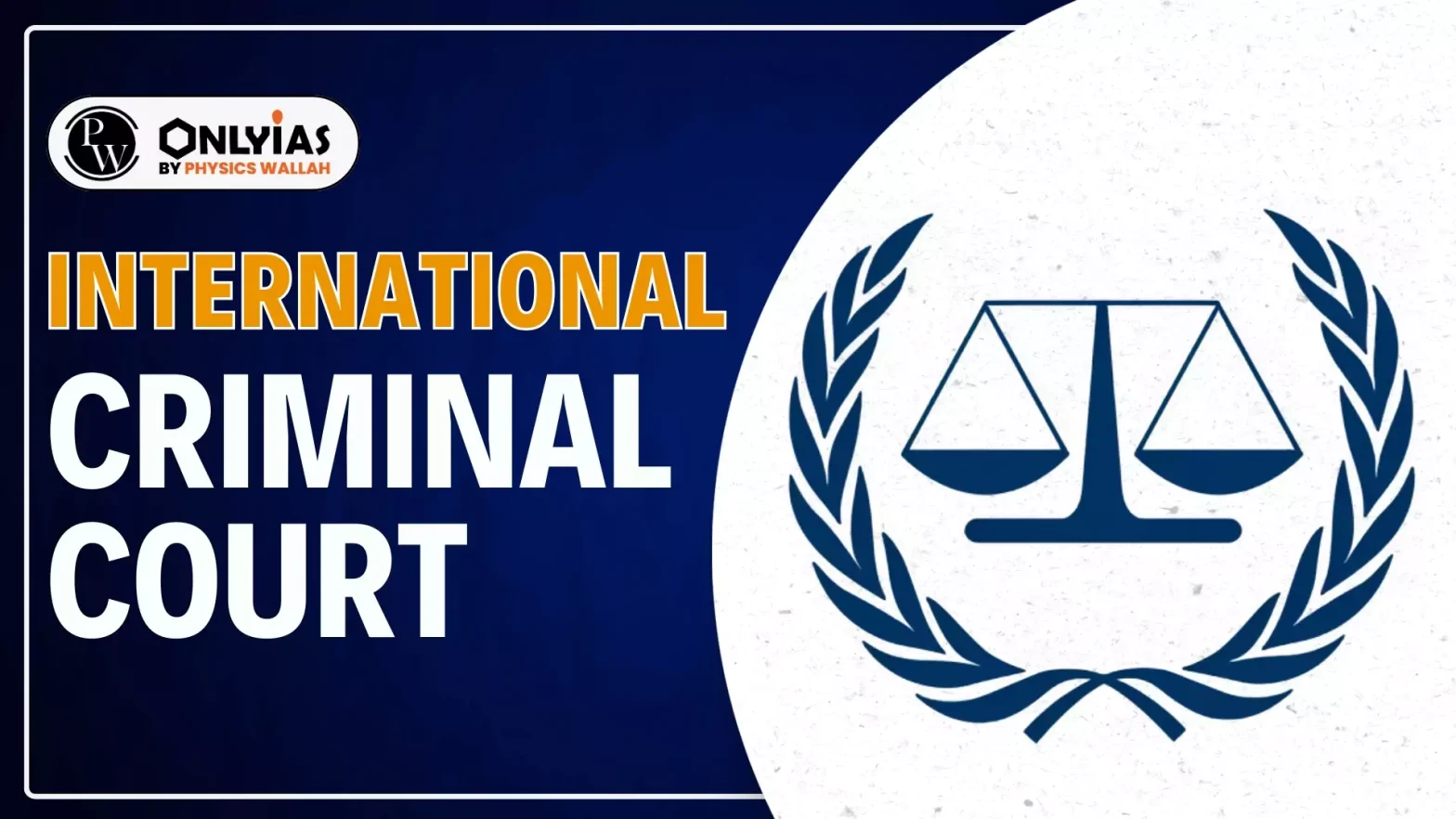International Criminal Court (ICC) is the first international court to investigate and prosecute individuals accused of serious international crimes.

International Criminal Court (ICC) is an intergovernmental organization and tribunal established to prosecute individuals accused of committing genocide, war crimes, crimes against humanity, and crimes of aggression. It plays a pivotal role in upholding international justice and human rights by holding perpetrators accountable for serious offenses that threaten global peace and security.
The International Criminal Court (ICC) issued arrest warrants for Israeli officials over alleged war crimes related to the Gaza conflict.
The International Criminal Court (ICC) is a permanent judicial institution that investigates and prosecutes individuals responsible for the gravest crimes under international law. Unlike the International Court of Justice (ICJ), which settles disputes between states, the ICC focuses on prosecuting individuals.
It was established under the Rome Statute in 2002, making it the first permanent international court designed to address serious human rights violations. The ICC operates independently from the United Nations (UN) but cooperates with it in enforcing global justice.
| International Criminal Court (ICC) | |
| Establishment | By Rome Statute, adopted on July 17, 1998, and entered into force on July 1, 2002 |
| Headquarters | The Hague, Netherlands |
| Crimes Covered | Genocide, War Crimes, Crimes Against Humanity, Crime of Aggression |
| Jurisdiction | Crimes committed on or after 1 July 2002 |
| Member Parties | 125 (India, U.S., China, Russia, and Israel are not parties) |
| Official Languages | English, French, Arabic, Chinese, Russian, Spanish |
| Organs | The ICC is composed of four organs: the Presidency, the Judicial Divisions, the Office of the Prosecutor, and the Registry |
| Judges | Elected by the Assembly of States Parties, who serve non-renewable nine-year terms |
| Enforcement of Order | Relies on state cooperation for arrests and surrenders. Does not have its own police force. |
| Relation with UN | ICC is independent but has a cooperation agreement with the United Nations. |
| Conditions for Investigation | ICC can investigate if national judicial systems fail to conduct genuine investigations/prosecutions. |
The ICC was officially established on July 1, 2002, following the adoption of the Rome Statute in 1998. This statute serves as the foundational treaty of the court, outlining its jurisdiction, powers, and procedures. Countries that have ratified the Rome Statute recognize the ICC’s authority and cooperate in prosecuting war criminals and human rights violators.
The headquarters of the ICC is located in The Hague, Netherlands. This location was chosen because The Hague is a global hub for international law and diplomacy, hosting other institutions such as the International Court of Justice (ICJ) and the Permanent Court of Arbitration.
The International Criminal Court currently has 125 member states that have ratified the Rome Statute. However, several major countries, including the United States, China, Russia, and India, have not joined the ICC due to concerns over national sovereignty and judicial independence.
As of 2025, the International Criminal Court (ICC) has 125 member states that are parties to the Rome Statute, the treaty that established the court. These member countries have agreed to recognize the ICC’s jurisdiction in prosecuting genocide, war crimes, crimes against humanity, and crimes of aggression.
| Regional Distribution of ICC Member States (2025) | |
| Region | Number of Member States |
| African States | 33 |
| Asia-Pacific States | 19 |
| Eastern European States | 20 |
| Latin American and Caribbean States | 28 |
| Western European and Other States | 25 |
| Total ICC Member States | 125 |
A total of 40 countries have not signed the Rome Statute and do not recognize the ICC’s jurisdiction. These countries include:
Countries that have not signed or ratified the Rome Statute argue that the ICC could interfere with their domestic judicial systems, leading to political or legal conflicts.
The President of the ICC is elected by the judges of the court and serves a three-year term. The current ICC President is Judge Tomoko Akane of Japan. She was elected in March 2021. The President oversees the court’s administration and judicial functions, ensuring that the tribunal operates effectively in prosecuting international crimes.
The ICC only investigates cases where national courts are unable or unwilling to prosecute crimes under international law. The ICC has jurisdiction over four major types of crimes:
While the ICC plays a critical role in global justice, it also faces significant challenges, including:
Despite these challenges, the ICC remains an essential institution for holding war criminals accountable and deterring future crimes.
Ready to boost your UPSC 2025 preparation? Join PW’s UPSC online courses today!
The International Criminal Court (ICC) is a permanent international tribunal established in 2002 to prosecute individuals for genocide, war crimes, crimes against humanity, and crimes of aggression.
The ICC headquarters is located in The Hague, Netherlands, a city known for hosting major international legal institutions.
The ICC has 125 member states that have ratified the Rome Statute, which governs its legal authority and jurisdiction.
The International Criminal Court (ICC) prosecutes individuals for serious crimes, whereas the International Court of Justice (ICJ) settles legal disputes between nations.
The current President of the ICC is Judge Tomoko Akane of Japan, since March 2021
<div class="new-fform">
</div>